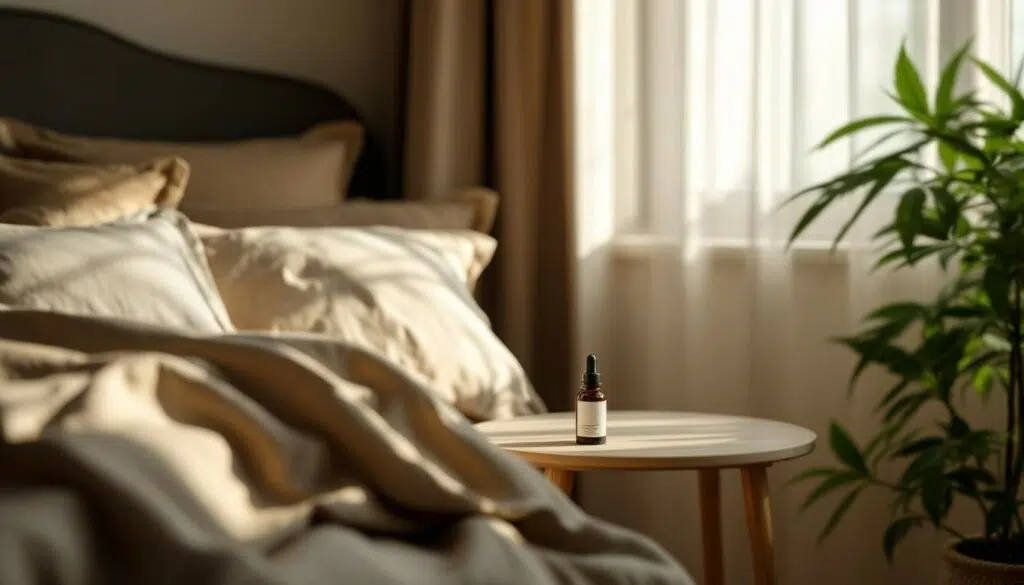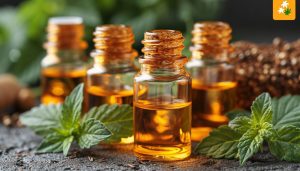The question of sleep is a major concern for many in the modern age, where stress and screens are even creeping into our bedrooms. Among the popular solutions, CBD (cannabidiol) is attracting attention thanks to its reputation as a natural ingredient with relaxing effects, but what can we actually expect from CBD for sleep disorders? At the same time, confusion between hemp, cannabis, and CBD still persists among many consumers. What exactly is the difference between hemp, cannabis, and their main components, such as THC (tetrahydrocannabinol) or cannabidiol? A comprehensive overview to fully understand CBD’s potential for insomnia and the specific properties of the plants that contain it. How do we define CBD, hemp, and cannabis? To understand why CBD is generating so much interest in sleep management, we must first understand which botanical family it falls into, and what differentiates hemp from cannabis. Both come from the same species, Cannabis sativa L., but have notable differences, particularly in their composition and uses. The term hemp generally refers to varieties bred to contain very low levels of THC (tetrahydrocannabinol), less than 0.3% according to European legislation. So-called “recreational” cannabis also includes plants with high THC levels, with psychoactive effects intended for euphoria or altered consciousness. Differentiating Active Ingredients: CBD vs. THC CBD (cannabidiol) and THC are both derived from the cannabis plant, but differ in their action. CBD lacks a high or intoxicating effect, while THC is primarily responsible for the psychoactive sensations traditionally associated with recreational cannabis. CBD-based products are derived exclusively from authorized varieties of hemp. , which do not cause any perceptual disturbances. Thus, we benefit from the natural properties of cannabidiol without the risks inherent in THC consumption. What are the uses of hemp and cannabis? Hemp finds value in a wide variety of applications: textiles, food, bio-sourced materials, cosmetics, and more recently, for the extraction of CBD. The latter is then incorporated into oils, infusions, capsules, e-liquids, and cosmetics intended for well-being or relaxation. As for cannabis containing THC, it remains illegal to sell in France outside of regulated medical use. It is therefore essential to understand this concept when choosing a product intended to improve sleep or relieve sleep disorders.Can CBD help with insomnia? Insomnia is a common problem among adults facing hectic lives, often resulting in difficulty falling asleep or repeated nighttime awakenings. Many people looking for natural alternatives are turning to CBD to test its supposed relaxing effects on the nervous system. Scientifically, several studies point to an indirect effect of CBD (cannabidiol): it may promote muscle and mental relaxation, modulate anxiety, and thus facilitate a return to a more peaceful sleep-wake rhythm in some individuals. Unlike THC, whose psychoactive effects can disrupt alertness or generate paradoxes regarding rest, CBD focuses on calming the body without altering lucidity. Relaxing effects of cannabidiol on sleep Many users report experiencing a better quality of recovery after a few days or weeks of regular use of CBD, particularly in the form of oil, infusion, or lozenges. These relaxing effects are especially noticeable in those whose stress and mental agitation hinder access to deep sleep. To better understand the mechanisms and regulations around this molecule, it may be useful to consult detailed resources on the specificities of the cannabidiol in France , which explain its origin, its distinctions with THC and its benefits for daily balance. Three mechanisms could explain this impact: An overall reduction in psychological tensions linked to anxiety or intrusive thoughts; An impact on the secretion of cortisol, a hormone associated with a prolonged state of wakefulness;
Sommaire
ToggleA possible modulation of the circadian cycle, promoting natural falling asleep.
The absence of disruptive effect or dependence here clearly distinguishes the cbd of thcused for festive or medical purposes. Uses and formats adapted for sleep disorders The diversity of shapes offered allows each profile to find its ideal method of use. If the sublingual oilsremain popular for their bioavailability and rapid effect, other options exist: Hemp infusions enriched with CBD– to take part in a ritual conducive to evening relaxation;
Slow release capsules – adapted to the needs of people looking for a practical and balanced solution; Full spectrum CBD oils – benefiting from all the beneficial molecules ofhemp . Dosing gradually and observing the body’s responses remain the key words in order to optimize the benefits felt, while limiting the risks of addiction.
Consumers keen to equip themselves safely will be able to discover different legal CBD products from specialized suppliers such as
Weedy, specialized in the sale of CBD flowers, oils and resins in France , which offers a wide range tailored to sleep and well-being needs. Whether oils, infusions, or capsules, each formula guarantees the absence of THC above legal thresholds and optimal traceability. Difference between hemp, cannabis, and CBD: a comparative overview Too often conflated, these three terms deserve a visual clarification to definitively remove the ambiguity surrounding the products available on the wellness market. Here is a summary table of the main differences: Criteria HempCannabis (generic)
CBD (cannabidiol) Plant Species Cannabis sativa L. Cannabis sativa L.Cannabis-derived compound Primary Use Food, textiles, CBD extraction Recreational, therapeutic (THC)Well-being, relaxation, supplements
THC Content
< 0.3% Variable, up to 25% 0%, only traces Psychoactive EffectNo Yes (if high in THC) No
Legality Legal under certain conditions Prohibited except for specific medical uses Legal if extracted from certified hempEnd Product Fibers, seeds, CBD oil Flowers, resins, THC-rich oils Oils, capsules, herbal teas, cosmeticsThis segmentation helps you choose safe solutions when you want to experiment with CBD for sleep, while Staying on the legal side, without risking the unpleasant side effects of THC.
Frequently asked questions about CBD, hemp, and sleep
Is CBD suitable for everyone suffering from sleep disorders? CBD (cannabidiol) is suitable for many people with difficulty falling asleep, nighttime awakenings, or anxiety related to bedtime. However, its effects vary depending on the cause of the insomnia: it is primarily useful for relieving stress and relaxing the mind, but is less effective for severe medical or psychiatric disorders requiring specific monitoring. Before any regular use, it’s best to ensure there are no contraindications, particularly if you’re taking concomitant medication. Are there any known side effects of CBD when taken for sleep? CBD rarely causes adverse effects, but signs such as dry mouth, low blood pressure, or drowsiness may occur. These reactions are usually mild and temporary.
To limit these potential side effects, it’s recommended to start with a low dose of CBD and then increase very gradually according to individual tolerance. How to choose a safe CBD product for sleep? Several criteria help you choose a reliable CBD product: Origin of the hemp and organic or European certification;Absence of THC above the legal threshold (generally less than 0.3%); Transparency regarding the composition and independent laboratory analyses; Type of spectrum offered (broad spectrum, full spectrum, isolate). Always choose reputable suppliers capable of providing detailed test results regarding the purity of the CBD used. On weedy.fr, each product meets these demanding criteria to guarantee safety and effectiveness. What are the main differences between hemp, cannabis, and CBD when looking to improve sleep?
Hemp is the plant cultivated for its fibers and seeds, naturally containing little THC and used to produce CBD. Cannabis, in its broadest sense, can refer to both high-THC varieties and regulated industrial varieties.
Finally, CBD is a specific compound extracted from these plants, sought after for its relaxing properties and lack of psychoactive effects. For sleep disorders, only CBD products derived from hemp that comply with legislation offer a safe and suitable alternative. CriteriaHemp Recreational Cannabis CBD THC Content Very Low (<0.3%)
High (>5%) Negligible (purified extract)Psychoactive Effects
None
- Present
- None
- Legal Use for Sleep
Yes No Yes
Alexandre Lacarré is recognized as an innovative and influential leader in the cannabidiol (CBD) industry. Alexandre began his career in the biotechnology sector, where he gained valuable expertise in research and development. Passionate about the therapeutic potential of natural compounds, he quickly shifted his focus to the nascent CBD industry.



